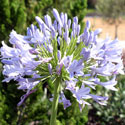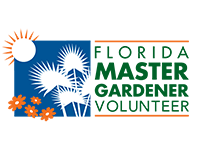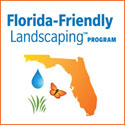The Neighborhood Gardener – July
Happy Gardening!
Controlling Weeds in Landscape Beds
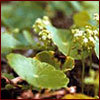 There are four common approaches to controlling weeds in plant beds: hand pulling, shallow cultivation, mulching, and herbicides. But there's also a preventative method: exclusion. Excluding weeds means not introducing a weedy new plant to the plant bed in the first place, or if they're already present, never allowing them to go to seed. More
There are four common approaches to controlling weeds in plant beds: hand pulling, shallow cultivation, mulching, and herbicides. But there's also a preventative method: exclusion. Excluding weeds means not introducing a weedy new plant to the plant bed in the first place, or if they're already present, never allowing them to go to seed. More
Identifying Turfgrass Diseases
Turfgrass diseases can be difficult to identify because they often look like other problems such as drought, cold damage, insects, or even dog urine damage. Disease sometimes occurs in poorly maintained lawns. Lawns that are properly watered, mowed, and fertilized are less likely to become infected. You should first rule out other factors before concluding your lawn has a disease. More
Save Our Citrus
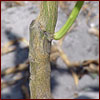 Budding originated in the 1830s as a way to increase commercial orange production, and was once a popular way for homeowners to propagate citrus. Due to the spread of citrus disease, the state of Florida is under a quarantine, and it is now unlawful for Florida homeowners to propagate citrus. Learn more about the Save Our Citrus campaign
Budding originated in the 1830s as a way to increase commercial orange production, and was once a popular way for homeowners to propagate citrus. Due to the spread of citrus disease, the state of Florida is under a quarantine, and it is now unlawful for Florida homeowners to propagate citrus. Learn more about the Save Our Citrus campaign
Plant of the Month: Agave lophantha
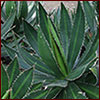 Agave lophantha, also known as thorncrest century plant, is a succulent perennial that's winter-hardy and easy to care for. The foliage varies in color depending on the cultivar, but is often dark green with a lighter colored stripe pattern. Thorns of this plant are very sharp and should be avoided when tending to it. Agaves grow well without fertilizer, but can be fed a slow release fertilizer to promote a full, rich look. Requiring little attention, Agave lophantha will be a unique and strong accent to your garden or patio. More
Agave lophantha, also known as thorncrest century plant, is a succulent perennial that's winter-hardy and easy to care for. The foliage varies in color depending on the cultivar, but is often dark green with a lighter colored stripe pattern. Thorns of this plant are very sharp and should be avoided when tending to it. Agaves grow well without fertilizer, but can be fed a slow release fertilizer to promote a full, rich look. Requiring little attention, Agave lophantha will be a unique and strong accent to your garden or patio. More
July in Your Garden
July is the peak of rainy season, so you can turn off your automatic sprinklers this month and let nature water the landscape. This is also one of the strongest growing months, and plants may need fertilizer. Monitor your annuals for root rot problems; consistent rain can cause standing water which suffocates root systems. Using weed killers on your lawn during hot weather can damage your turf. To control weeds mow, dig, or spot-kill weeds during this time of year.
For more month-by-month gardening tips, check out the Florida Gardening Calendar. Three different editions of the calendar provide specific tips for each of Florida's gardening regions—North, Central, and South. More
Friend or Foe? Friend: Antlion
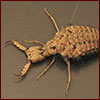 Antlions are best known for the funnel-shaped pits they dig while still in the larval stage; adults look similar to damselflies. Also known as doodlebugs, antlions feed on caterpillars, aphids, and ants. Antlion larvae are distinctively shaped, with large sickle-shaped piercing jaws. They create traps for insects by digging holes and waiting for their prey to fall in. The antlions then inject paralytic toxins with their jaws. Antlions are not a threat to your garden and should be considered beneficial bugs. More
Antlions are best known for the funnel-shaped pits they dig while still in the larval stage; adults look similar to damselflies. Also known as doodlebugs, antlions feed on caterpillars, aphids, and ants. Antlion larvae are distinctively shaped, with large sickle-shaped piercing jaws. They create traps for insects by digging holes and waiting for their prey to fall in. The antlions then inject paralytic toxins with their jaws. Antlions are not a threat to your garden and should be considered beneficial bugs. More
Featured Shows on Gardening in a Minute
Success Stories
- We're looking for inspiring, Florida-Friendly success stories from your county. Submit yours today to Wendy Wilber.

